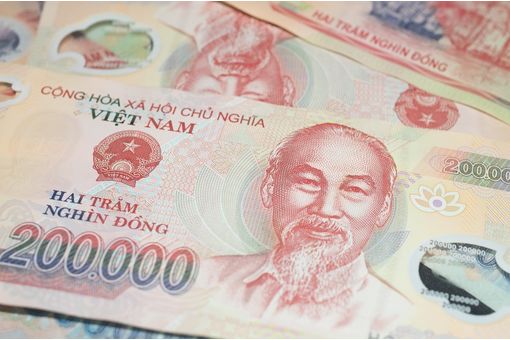Interviews
US specialty fabrics take their place in the global marketplace
24 Jan '11
5 min read
The typical “gut” image if you mention U.S. textile manufacturing is that of an industry in decline. It's the story of jobs that have been lost by the hundreds of thousands in the last decade and factories shuttered as production shifted overseas. Hidden in this decline, however, there is a better story of a segment of the domestic textile manufacturing base that has not only survived decades of bad trade policies and relentless import pressures but now actually thrives —specialty fabrics.
Specialty fabrics are used to keep our first responders safe in fire-resistant protection suits and anti-ballistic vests. They're the high-tech membranes used to protect our environment, containing toxic waste, ensuring quality drinking water and preventing shoreline erosion. They're composite materials used in new pavement technology to rebuild our nation's infrastructure. They're the lightweight, ultra-strong fabrics in the airbags which have saved thousands of lives and the shade provided in playground structures that keep our children away from the harmful rays of the sun.
These U.S.-made fabrics have played a vital role in supporting our armed forces and, most recently, in protecting the environment through oil boom containment systems used in the Gulf oil spill disaster. Fabrics are key components in the automotive and construction industry, and absolutely critical as America takes the lead in innovative green and sustainable initiatives.
The domestic specialty fabrics industry has quietly emerged to offer globally competitive products through constant innovation. New applications of these diverse materials are being discovered every day. Both material suppliers and those that manufacture products made from specialty fabrics are located in every state.
So, what's the fuss?
To remain on top of the game, we need government commitment to support product development and keep the domestic marketplace a fair place to do business. We are concerned about several provisions in the United States-Korea Free Trade Agreement (KORUS) that is now being considered in Congress. The agreement, as proposed, could have a devastating impact on this emerging industry, costing America jobs and the loss of key emerging domestic and export opportunities.
And, today, just as important as keeping the playing field level in the U.S., we need government support to continue to promote domestic-made products in overseas markets.
We have formidable competition in the overseas markets. Both the Chinese and German governments provide billions of dollars for companies that are investing in their domestic specialty fabrics industry. The Korean government allocated $16 billion for specialty fabric manufacturing projects and another $5.6 billion on core technology for the local production of composite fibers and nano-textiles.
The battle ground – the region that especially attracts our overseas interests – is Asia Pacific. Emerging countries like Indonesia and Malaysia are becoming major consumers of specialty fabrics. There is a growing middle-class population in India that equals the entire population of the U.S. High-valued end markets including military, automotive, safety and functional apparel; medical, environmental protection and wide-format printing are demanding more sophisticated specialty fabrics. The building and construction outlook there is robust. “Green” applications such as renewable energy and water conservation are necessary as the population demands quality of life improvements.
Specialty fabrics are used to keep our first responders safe in fire-resistant protection suits and anti-ballistic vests. They're the high-tech membranes used to protect our environment, containing toxic waste, ensuring quality drinking water and preventing shoreline erosion. They're composite materials used in new pavement technology to rebuild our nation's infrastructure. They're the lightweight, ultra-strong fabrics in the airbags which have saved thousands of lives and the shade provided in playground structures that keep our children away from the harmful rays of the sun.
These U.S.-made fabrics have played a vital role in supporting our armed forces and, most recently, in protecting the environment through oil boom containment systems used in the Gulf oil spill disaster. Fabrics are key components in the automotive and construction industry, and absolutely critical as America takes the lead in innovative green and sustainable initiatives.
The domestic specialty fabrics industry has quietly emerged to offer globally competitive products through constant innovation. New applications of these diverse materials are being discovered every day. Both material suppliers and those that manufacture products made from specialty fabrics are located in every state.
So, what's the fuss?
To remain on top of the game, we need government commitment to support product development and keep the domestic marketplace a fair place to do business. We are concerned about several provisions in the United States-Korea Free Trade Agreement (KORUS) that is now being considered in Congress. The agreement, as proposed, could have a devastating impact on this emerging industry, costing America jobs and the loss of key emerging domestic and export opportunities.
And, today, just as important as keeping the playing field level in the U.S., we need government support to continue to promote domestic-made products in overseas markets.
We have formidable competition in the overseas markets. Both the Chinese and German governments provide billions of dollars for companies that are investing in their domestic specialty fabrics industry. The Korean government allocated $16 billion for specialty fabric manufacturing projects and another $5.6 billion on core technology for the local production of composite fibers and nano-textiles.
The battle ground – the region that especially attracts our overseas interests – is Asia Pacific. Emerging countries like Indonesia and Malaysia are becoming major consumers of specialty fabrics. There is a growing middle-class population in India that equals the entire population of the U.S. High-valued end markets including military, automotive, safety and functional apparel; medical, environmental protection and wide-format printing are demanding more sophisticated specialty fabrics. The building and construction outlook there is robust. “Green” applications such as renewable energy and water conservation are necessary as the population demands quality of life improvements.
Popular News
































-Ltd..jpg?tr=w-120,h-60,c-at_max,cm-pad_resize,bg-ffffff)





.jpg?tr=w-120,h-60,c-at_max,cm-pad_resize,bg-ffffff)
.jpg?tr=w-120,h-60,c-at_max,cm-pad_resize,bg-ffffff)






